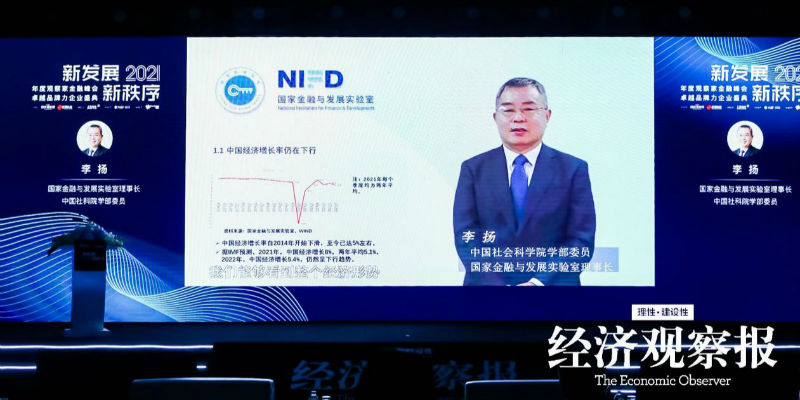
On November 23, the "New Development, New Order - 2021 Observer Financial Summit" hosted by the Economic Observer and strategically cooperated by Shanghai Trust was held in Shanghai. At the meeting, Li Yang, chairman of the National Finance and Development Laboratory and member of the Faculty of the Chinese Academy of Social Sciences, said that there are differences in the current implementation of the "double carbon" strategy between countries and stages of development. At present, some developed economies have long completed their peak, while China is still in the platform period.
Li Yang said, "Advanced economies have 60-80 years to complete carbon neutrality and carbon peak, while China only has 40 years. China will take 40 years to complete the task of developed economies for 60-80 years, and the pressure is enormous. ”
According to Li Yang, the current carbon emissions are currently about 40 billion tons of carbon dioxide in the world every year, 80% from fossil fuels and 14% from land use. The dual-carbon target relies more on human efforts to reduce and zero carbon.
The above process, Li Yang reminded, can not be separated, the need for a unified top-level arrangement.
When referring to the main path to achieving carbon neutrality, Li Yang proposed four paths. These include zero carbonization of energy and electrification of industrial transportation; technological transformation and energy efficiency improvement: from the demand side, demand to be reduced; and the creation of new capabilities to capture carbon.
In the process of implementing the dual-carbon strategy, Li Yang said that the negative impacts at different stages of implementation must be considered and valued. He said that it is necessary to balance economic growth and low-carbon development. "Carbon peaking and carbon neutrality obviously cannot be at the expense of economic development speed, national wealth accumulation and people's living standards, so it is necessary to balance various relationships, deal with the problem of employee transfer in traditional industries, and deal with the accumulation of stock financial assets and stock wealth and financial risk exposure."
Li Yang believes that the above considerations need to be put on the agenda at the beginning.
Finally, Li Yang said that in the process of implementing the dual-carbon strategy, it is also necessary to establish a green financial system and deal with the financial risks of transformation, mainly including two aspects.
First, new products are needed to support green development; second, there are a large number of products and policies to consider the problem of non-performing assets that arise in the transformation process.
In addition, he also reminded that in the process of implementing financial transformation, there is also a need for supporting reforms. Examples include a mandatory environmental disclosure system, environmental and climate risk stress testing, scenario analysis, and a series of reform measures such as carbon markets.